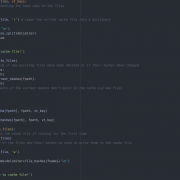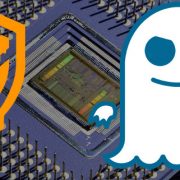CVE-2014-6271 – Shellshock
Shellshock is a bug in the bash shell. The main issue comes from the fact that commands can be executed if they are crafted into environment variables. This means anyone who can send a user agent to Apache can run commands as the user running Apache.
Am I affected?
You can test if your server is vulnerable by logging in and running
env x='() { :;}; echo vulnerable' bash -c "echo this is a test"
If it outputs vulnerable there are a few steps you can take to try to prevent it being exploited.
Prevention for website owners
The easiest solution is to update to a version of bash that isn’t vulnerable however if one has not yet been released on your distribution you will have to consider other prevention methods.
Since an attacker needs to exploit a vulnerable service two likely targets being SSH and Apache you can mitigate most attack vectors by stopping these services.
As long as you have another way to login it is worth stopping SSH since it is likely to be running as root it could allow an attacker to gain root access to the server.
Stopping Apache is a more difficult decision since it will prevent customers from accessing your site however if you are very concerned then it may be the best cause of action.
A more complex solution is to switch to a different shell instead of bash but this is more complex and may have unexpected consequences to how applications run so we don’t recommend doing this blindly.
If you have a maintenance agreement with us then you don’t need to worry because we are updating bash whenever possible.
Feel free to get in touch if we can help with this.
Feature image – “Shellshock” by Linux Screenshots is licensed under CC BY 2.0












Trackbacks & Pingbacks
[…] This weekend, a very serious vulnerability in the popular Java-based logging package Log4j was disclosed. This vulnerability allows an attacker to execute code on a remote server; a so-called Remote Code Execution (RCE). Because of the widespread use of Java and Log4j, as well as the relative ease with which the vulnerability can be exploited, this is likely one of the most serious vulnerabilities on the Internet since both Heartbleed and ShellShock. […]
Leave a Reply
Want to join the discussion?Feel free to contribute!